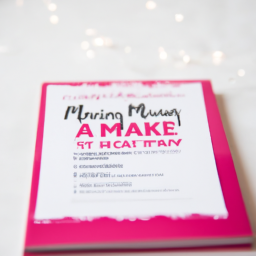Marriage is a beautiful journey that brings two individuals together, bound by love, commitment, and shared dreams. However, even the strongest of marriages can face challenges along the way. Whether you’re a newlywed seeking guidance or someone who has been married for years and looking to strengthen your relationship, seeking advice is a wise step towards building a thriving partnership. In this blog post, we will explore the topic of marriage advice and delve into various strategies, insights, and practical tips to help you navigate the complexities that arise within the sacred bond of matrimony. If you find yourself saying, “I need marriage advice,” then this post is tailored to offer you guidance and support, empowering you to foster a loving, fulfilling, and long-lasting relationship.
Communication in Marriage: Tips for Effective and Open Dialogue
Marriage is a beautiful journey that requires constant effort and commitment from both partners. One of the key elements for a successful and fulfilling marriage is effective communication. Good communication fosters understanding, trust, and intimacy between partners, while poor communication can lead to misunderstandings, conflicts, and distance. In this article, we will explore some valuable tips for improving communication in your marriage.
1. Create a Safe and Non-Judgmental Space
Creating a safe and non-judgmental space is crucial for open and honest communication in a marriage. Both partners should feel comfortable expressing their thoughts, feelings, and concerns without fear of criticism or judgment. This requires active listening, empathy, and respect for each other’s perspective.
When engaging in a conversation, make sure to eliminate distractions and focus solely on your partner. Maintain eye contact, nod to show understanding, and avoid interrupting. By doing so, you are sending a message that you value and prioritize their thoughts and emotions.
It is also important to use “I” statements instead of “you” statements when discussing sensitive topics. This helps to avoid blaming or accusing your partner, which can escalate conflicts. For example, instead of saying, “You never listen to me,” try saying, “I feel unheard when I share my thoughts.”
2. Practice Active Listening
Active listening is a fundamental skill that can significantly enhance communication in your marriage. It involves fully concentrating on what your partner is saying, understanding their message, and responding appropriately. Active listening requires patience, empathy, and the ability to withhold judgment.
When your partner is speaking, refrain from formulating your response in your mind. Instead, focus on understanding their perspective and emotions. Reflect their words back to them to ensure you have understood correctly. This not only demonstrates that you are actively engaged in the conversation but also helps clarify any misunderstandings.
Paraphrasing is another powerful technique in active listening. Repeat what your partner has said using your own words to show that you have grasped their message. This encourages further dialogue and demonstrates your commitment to understanding their point of view.
3. Foster Emotional Intelligence
Emotional intelligence plays a vital role in effective communication and overall marital satisfaction. It involves recognizing, understanding, and managing your own emotions as well as empathizing with your partner’s emotions. Developing emotional intelligence can help you navigate conflicts, express your needs, and validate your partner’s feelings.
Start by becoming more aware of your own emotions and triggers. Take the time to reflect on your emotional state before engaging in a conversation with your partner. This self-awareness will enable you to communicate more effectively and avoid reacting impulsively or defensively.
Empathy is another essential aspect of emotional intelligence. Put yourself in your partner’s shoes and try to understand their perspective and emotions. Validate their feelings by acknowledging their experiences and demonstrating that you genuinely care.
Lastly, managing emotions is crucial for productive communication. If you feel overwhelmed or angry, take a break and engage in a self-soothing activity before continuing the conversation. This will help you approach the discussion with a calmer and more rational mindset.
In conclusion, effective communication is the cornerstone of a healthy and thriving marriage. By creating a safe space, practicing active listening, and fostering emotional intelligence, you can strengthen your connection with your partner and build a solid foundation for a lifetime of love and happiness.

Building Trust and Intimacy in Your Relationship: Essential Marriage Advice
Marriage is a beautiful journey that requires effort, commitment, and understanding from both partners. One of the key elements for a successful and fulfilling marriage is building trust and intimacy. Trust forms the foundation of any strong relationship, while intimacy strengthens the emotional bond between partners. In this article, we will discuss essential marriage advice on how to build trust and intimacy in your relationship.
1. Effective Communication
Communication is the cornerstone of any healthy relationship. It is crucial to establish open and honest communication channels with your partner. Effective communication involves active listening, expressing emotions, and understanding each other’s perspectives. Here are some tips to enhance communication in your marriage:
Express Yourself: Share your feelings, thoughts, and concerns with your partner. Be open and honest about your needs and expectations. Avoid bottling up emotions, as it can lead to resentment and misunderstandings.
Active Listening: Give your partner your undivided attention when they are speaking. Show empathy and try to understand their point of view. Avoid interrupting or making assumptions.
Respectful Communication: Choose your words carefully and avoid using hurtful language. Be respectful and considerate of your partner’s feelings. Remember, communication is a two-way street, so encourage your partner to express themselves as well.
2. Building Trust
Trust is the foundation of a strong and lasting marriage. It takes time to build trust, but it can be easily shattered if not nurtured. Here are some essential steps to build trust in your relationship:
Consistency: Be consistent in your words and actions. Keep your promises and follow through on your commitments. This consistency will help your partner rely on you and feel secure in the relationship.
Transparency: Be open and honest with your partner. Share your thoughts, fears, and vulnerabilities. Avoid keeping secrets or hiding important information. Transparency builds trust and fosters a deeper connection.
Forgiveness: No one is perfect, and mistakes are bound to happen. Learn to forgive your partner for their shortcomings and accept their apologies. Holding onto grudges will only erode trust and create distance between you.
3. Cultivating Intimacy
Intimacy goes beyond physical attraction. It involves emotional closeness, vulnerability, and a deep understanding of each other. Here are some ways to cultivate intimacy in your marriage:
Quality Time: Make time for each other amidst the busyness of life. Engage in activities that you both enjoy and create shared experiences. This quality time allows you to connect on a deeper level and strengthens your emotional bond.
Emotional Support: Be there for your partner during both the highs and lows. Offer a listening ear, provide encouragement, and show empathy. Knowing that you have each other’s backs creates a sense of security and intimacy.
Physical Intimacy: Physical touch is an important aspect of intimacy. It can range from holding hands, hugging, kissing, to sexual intimacy. Communicate your desires and needs with your partner, and explore ways to keep the physical connection alive.
In conclusion, building trust and intimacy in your marriage is a continuous process that requires effort, understanding, and commitment from both partners. Effective communication, building trust, and cultivating intimacy are essential elements to strengthen your relationship. By implementing these steps, you can create a strong foundation for a fulfilling and lasting marriage.

Marriage is a beautiful journey filled with love, companionship, and growth. However, it is not without its challenges. Every couple faces obstacles along the way, and how they navigate these challenges can determine the strength and longevity of their relationship. In this article, we will provide you with expert advice and strategies to help you effectively navigate challenges and resolve conflicts in your marriage.
Understanding the Nature of Challenges in Marriage
Challenges in marriage can arise from various sources such as communication issues, financial stress, differences in values or expectations, parenting disagreements, or external factors like work or extended family dynamics. It is essential to understand that facing challenges is a normal part of any relationship, and it does not necessarily indicate a failing marriage. By acknowledging this, you can approach challenges with a mindset of growth and problem-solving.
When confronted with a challenge, it is crucial to avoid blame and instead focus on understanding the underlying issues. Open and honest communication is the key to resolving conflicts effectively. Create a safe space where both partners can express their feelings without fear of judgment or criticism. Active listening, empathy, and validation are essential during these conversations.
Additionally, it is vital to approach challenges as a team rather than adversaries. Remember that you are both on the same side, working towards a common goal of a happy and fulfilling marriage. By adopting a collaborative mindset, you can strengthen your bond and find mutually beneficial solutions.
Strategies for Effective Conflict Resolution
1. Identify the Root Cause: When conflicts arise, it is essential to dig deeper and identify the underlying cause. Often, what appears as a surface-level disagreement is rooted in deeper emotions or unmet needs. Take the time to reflect on your own feelings and needs, and encourage your partner to do the same. This self-awareness will help you address the core issues and find lasting resolutions.
2. Practice Active Listening: Listening is a fundamental aspect of effective communication. Give your partner your undivided attention when they are expressing their concerns or grievances. Avoid interrupting or formulating counterarguments in your mind while they speak. Instead, focus on understanding their perspective and validating their emotions. Reflect back what you heard to ensure clarity and avoid misunderstandings.
3. Use “I” Statements: When discussing sensitive topics, it is crucial to use “I” statements instead of “you” statements. For example, say “I feel hurt when…” instead of “You always make me feel hurt when…”. This shift in language helps to avoid blaming and accusatory tones, fostering a more constructive and non-confrontational dialogue.
4. Seek Compromise: In any conflict, it is rare for one partner to be completely right and the other completely wrong. Instead of aiming for a win-lose situation, strive for a win-win outcome through compromise. Look for solutions that meet both partners’ needs and find common ground. Remember, a successful resolution is not about one person giving in, but about finding a middle ground that satisfies both parties.
5. Take a Time-Out: Sometimes, conflicts can escalate to a point where emotions are running high, and productive communication becomes challenging. In such situations, it is okay to take a time-out. Agree to pause the discussion temporarily and give yourselves time to cool down and gather your thoughts. However, it is crucial to revisit the conversation later to ensure unresolved issues do not linger.
6. Seek Professional Help if Needed: If you find yourselves repeatedly facing challenges or unable to resolve conflicts on your own, do not hesitate to seek professional help. Marriage counselors or therapists can provide valuable guidance and tools to improve communication, understand each other’s perspectives, and work through deeper issues. Seeking help is a sign of strength and commitment to the health of your marriage.
Maintaining a Strong and Healthy Marriage
While conflict resolution is essential, it is equally important to prioritize the overall health of your marriage. Here are some additional strategies to maintain a strong and healthy relationship:
1. Cultivate Emotional Intimacy: Emotional intimacy is the foundation of a strong marriage. Make time for regular check-ins with your partner to discuss your feelings, dreams, and aspirations. Create rituals of connection, such as date nights or shared hobbies, to deepen your emotional bond.
2. Practice Gratitude: Expressing gratitude towards your partner strengthens the positive aspects of your relationship. Regularly acknowledge and appreciate their efforts, both big and small. This practice fosters a sense of mutual respect and reinforces the love between you.
3. Prioritize Quality Time: In the midst of busy lives, it is crucial to prioritize quality time together. Dedicate uninterrupted time to connect and engage with each other. This could be through shared activities, meaningful conversations, or simply enjoying each other’s presence.
4. Maintain Individual Identities: While marriage is a union, it is essential to maintain your individual identities. Encourage each other’s personal growth, hobbies, and interests. Allowing space for individuality strengthens the relationship by fostering a sense of self-fulfillment and personal happiness.
5. Seek Fun and Laughter: Laughter is truly the best medicine for any relationship. Find opportunities to inject humor and playfulness into your marriage. Engage in activities that bring joy and laughter, creating shared memories and deepening your bond.
Remember, every marriage is unique, and what works for one couple may not work for another. The key is to continuously invest time and effort into your relationship and adapt these strategies to suit your specific circumstances. By navigating challenges with patience, understanding, and effective communication, you can build a resilient and fulfilling marriage that stands the test of time.
Crisp Recap
Are you feeling lost and in need of guidance when it comes to your marriage? Seeking advice is a wise step towards nurturing and strengthening your relationship. In this blog post, we will explore some valuable insights and suggestions to help you navigate the complexities of married life.
Firstly, communication stands as the cornerstone of a successful marriage. Open and honest conversations create a safe space for both partners to express their needs, concerns, and emotions. Active listening is equally important, allowing each spouse to feel heard and understood. Remember, effective communication involves not only expressing oneself but also being receptive to your partner’s thoughts and feelings.
Additionally, cultivating empathy and understanding is crucial. Marriage is a union of two unique individuals, each with their own perspectives and experiences. Empathy allows you to put yourself in your partner’s shoes, fostering compassion and connection. By seeking to understand their point of view, you can navigate conflicts with greater empathy and find mutually beneficial solutions.
Furthermore, it is vital to prioritize quality time together. In the hustle and bustle of daily life, it’s easy to lose sight of the importance of spending dedicated time with your spouse. Whether it’s a weekly date night or simply setting aside uninterrupted moments each day, prioritizing quality time allows you to reconnect and nurture your bond.
Lastly, remember that seeking professional help is not a sign of weakness but rather a testament to your commitment to your marriage. Sometimes, external guidance from a marriage counselor or therapist can provide invaluable insights and strategies for overcoming challenges.
In conclusion, a successful marriage requires continuous effort, open communication, empathy, quality time, and a willingness to seek professional help when needed. By implementing these suggestions, you can navigate the ups and downs of married life with grace and strengthen the foundation of your relationship.
Here are some FAQs you’d be interested in:
Q1: What is the importance of seeking marriage advice?
A1: Seeking marriage advice is important because it allows couples to gain insights, guidance, and support from professionals or experienced individuals who can help navigate challenges and strengthen their relationship. It provides an opportunity to learn effective communication techniques, resolve conflicts, and develop strategies for a successful and fulfilling marriage.
Q2: Who can benefit from marriage advice?
A2: Marriage advice is beneficial for couples at any stage of their relationship, whether they are newlyweds, have been together for years, or even considering marriage. It can help couples facing difficulties, those seeking to improve their relationship, or individuals who want to gain a better understanding of the dynamics and complexities of marriage.
Q3: Where can I find reliable marriage advice?
A3: Reliable marriage advice can be found from various sources, including licensed marriage counselors, therapists, relationship coaches, and reputable online platforms that specialize in providing guidance for couples. It is important to seek advice from qualified professionals who have experience and expertise in the field of marriage and relationships.
Q4: What are some common topics addressed in marriage advice?
A4: Marriage advice often covers a wide range of topics, including communication skills, conflict resolution, intimacy and sexual satisfaction, trust-building, financial management, parenting, and maintaining a healthy work-life balance. These topics aim to address common challenges couples face and provide strategies for fostering a strong and harmonious relationship.
Q5: How can marriage advice contribute to a successful marriage?
A5: Marriage advice can contribute to a successful marriage by offering couples valuable tools and techniques to enhance their relationship. It helps couples develop a deeper understanding of each other, improve communication, resolve conflicts constructively, and build a foundation of trust and mutual respect. Seeking advice also demonstrates a commitment to personal growth and a willingness to invest in the relationship for long-term happiness and fulfillment.

About Sarah:
Sarah is a certified marriage counselor and co-founder of SaveOurVows.com. Her expertise lies in helping couples reignite the spark in their relationships and create a lasting bond built on trust and understanding. As a devoted wife and mother, Sarah draws from her personal experiences and professional training to offer valuable guidance to couples seeking to save their marriages. Her articles focus on nurturing emotional connection and fostering a supportive environment where love can thrive.
About John:
John is a relationship expert and co-founder of SaveOurVows.com. With a Master’s degree in Marriage and Family Therapy, John is passionate about helping couples navigate the challenges that come with marriage. Having experienced the highs and lows in his own relationship with Sarah, he understands the complexities of married life and believes in the power of effective communication and emotional intimacy. John’s articles offer practical tips and insights to empower couples in their journey to a stronger and more fulfilling marriage.
Together as a Team:
John and Sarah’s mission is to provide a compassionate and supportive platform for couples in need of guidance and encouragement. Through their collaborative efforts, they aim to inspire love and commitment in marriages worldwide. As a couple themselves, they embody the principles they teach, and their dedication to helping others strengthen their relationships is the driving force behind SaveOurVows.com.
Favorite Topics:
Rekindling Romance: John and Sarah believe that rekindling the romance is an essential aspect of any successful marriage. Their articles on this topic offer creative ideas and practical strategies to keep the passion alive.
Effective Communication: Communication is the foundation of a healthy relationship. John and Sarah share expert tips to improve communication between couples and resolve conflicts constructively.
Building Trust: Trust is paramount in any marriage. Through their articles, they help couples rebuild trust and create a secure and loving environment.
Join Sarah and John’s Journey:
Sarah and John invite you to join them on their journey of empowering couples to save their vows and build lasting and fulfilling marriages. Their insights and advice aim to make a positive impact on your relationship, fostering a bond that stands the test of time.






